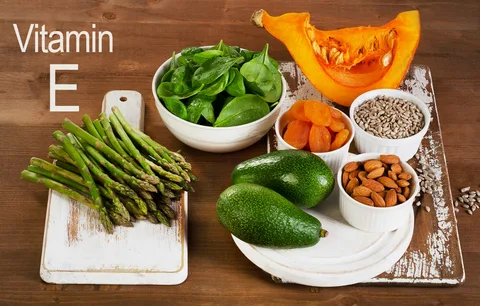Ensuring that children receive adequate nutrition is crucial for their growth, development, and overall health. Vitamins play a pivotal role in supporting various bodily functions, from boosting immunity to promoting proper cognitive development. This guide explores why vitamins are essential for children and how parents can ensure their kids get the nutrients they need.
Introduction to Vitamins
Vitamins are organic compounds essential for normal growth and development. They are required in small amounts but are crucial for maintaining health. Children need a variety of vitamins to support their immune system, promote healthy bones and teeth, aid in cognitive function, and more.
Understanding the Role of Vitamins in Children’s Health
Vitamin A
What is the role of Vitamin A in children’s health? Vitamin A is vital for vision, immune function, and cell growth. It supports healthy skin and mucous membranes.
Vitamin C
How does Vitamin C benefit children’s health? Vitamin C is essential for immune function, wound healing, and the absorption of iron. It also acts as an antioxidant.
Vitamin D
Why is Vitamin D important for children? Vitamin D is crucial for bone health as it helps in the absorption of calcium and phosphorus. It also supports immune function.
Vitamin E
What does Vitamin E do for children’s health? Vitamin E acts as an antioxidant, protecting cells from damage. It also supports immune function and skin health.
Vitamin K
What role does Vitamin K play in children’s health? Vitamin K is necessary for blood clotting and bone metabolism, promoting healthy bones and preventing excessive bleeding.
B Vitamins (B1, B2, B3, B6, B12)
How do B vitamins contribute to children’s health? B vitamins are essential for energy production, nervous system function, and the formation of red blood cells.
Folate (Vitamin B9)
Why is folate important for children? Folate is crucial for DNA synthesis and cell growth. It supports brain development and helps prevent neural tube defects.
Vitamin B7 (Biotin)
What role does biotin play in children’s health? Biotin supports metabolism and is essential for healthy hair, skin, and nails.
Vitamin B5 (Pantothenic Acid)
How does Vitamin B5 benefit children’s health? Vitamin B5 is important for energy metabolism and hormone synthesis.
Vitamin B7 (Choline)
Why is choline important for children? Choline supports brain development, memory function, and liver health.
Ensuring Children Get Sufficient Vitamins
Dietary Sources
What are some good food sources of vitamins for children? Include fruits, vegetables, dairy products, lean meats, fish, nuts, and whole grains in their diet.
Supplementation
When should children take vitamin supplements? Supplements may be necessary if a child has a restricted diet, certain health conditions, or specific vitamin deficiencies.
Common Concerns and FAQs
1. What are the signs of vitamin deficiency in children?
Signs include fatigue, poor growth, delayed development, frequent infections, and skin issues.
2. How can parents encourage healthy eating habits in children?
Offer a variety of nutritious foods, involve children in meal planning, and be a positive role model.
3. Are there risks associated with too much of certain vitamins?
Excessive intake of certain vitamins can lead to toxicity. It’s important to follow recommended daily allowances.
4. Can picky eating affect a child’s vitamin intake?
Yes, picky eaters may not get enough essential vitamins and minerals. Supplementing may be necessary.
5. Should children take multivitamins?
Multivitamins can be beneficial if a child’s diet lacks variety or certain nutrients. Consult a pediatrician.
6. How can parents ensure their children get enough Vitamin D?
Encourage outdoor play and include fortified foods like milk and cereals in their diet. Supplements may be needed in some cases.
7. What vitamins are important for a child’s immune system?
Vitamins A, C, D, and E are crucial for supporting immune function and overall health.
8. How do vitamins contribute to brain development in children?
Vitamins like B vitamins, folate, and choline play key roles in brain development, cognitive function, and memory.
9. What role does Vitamin C play in children’s skin health?
Vitamin C supports collagen production, which is important for maintaining healthy skin and wound healing.
10. Are there specific vitamins that vegetarian or vegan children should focus on?
Vegetarian and vegan children may need supplements for Vitamin B12, Vitamin D, and iron. A balanced diet is essential.
Conclusion
Ensuring children receive adequate vitamins through a balanced diet or supplementation is essential for their growth, development, and overall well-being. By understanding the roles of various vitamins and addressing common concerns, parents can help support their children’s health effectively.
- Downturned Smile Treatment Near Redhill, Surrey - May 5, 2025
- Jalupro Super Hydro Skin Booster Treatments Near Copthorne, Surrey - May 4, 2025
- Dermal Fillers Near Bagshot, Surrey - May 4, 2025



